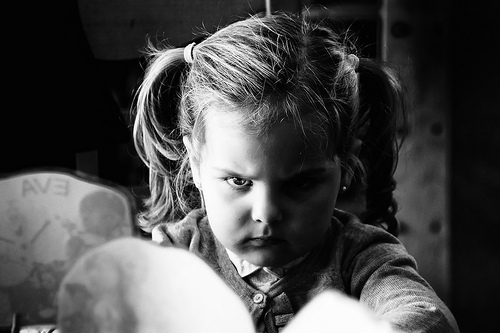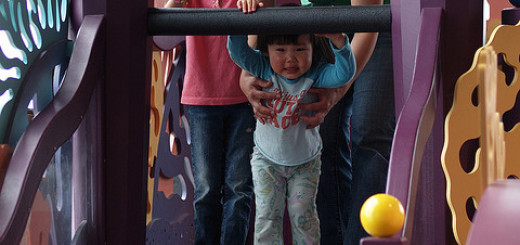Children’s Jealousy, Anger and Envy
Today let’s think about children’s jealousy, anger and envy – so you can understand more easily how to handle these emotions as they arise in both your children and affect you.
We often talk about such feelings in a negative way, don’t we? When we observe Lara exhibiting jealous behaviour towards her sister Sara, we hear their parent say ‘Siblings don’t get jealous’. When Sara fights violently with Lara in anger, the adult in charge often says ‘Be respectful to your older sister.’ Another phrase often pronounced by adults towards children and adolescents is ‘You should be ashamed of yourself’. We say these things because we have been taught this way as children and so have been unable to process our feelings successfully as children.
When your baby is born he, or she, possesses the capacity to grow, just like seeds that mature into trees. All they need is the equivalent of good soil, sun, water and care to protect them until they are strong enough. Jealousy and anger are normal and healthy feelings. Healthy children sooner or later become able to talk about their jealousy which in turn helps them to be accepting. This represents developmental success. In our social life we meet people who envy us as well as those towards whom we feel envious. Only those of us who were able to experience developmental success as children will be able to handle such situations comfortably.
The source of jealousy is the child’s capacity to love and attach. The children want to be loved so much that they can be jealous of their sibling being the centre of attention. They love their mother so much that they want to be their mother’s universe, being jealous of anything that takes mother’s time and energy away from them.
Maybe I am going too fast and oversimplifying? Let’s go back few steps and tell you what happens with babies until they start experiencing jealousy.
During early infancy, food, mother, and the relief she brings, are all are part of the baby at least in your infant’s perception. It all seems to happen by itself and is all that your baby knows. Around 15 months babies start to realise that the loved object or person is part of the outside world. This means they can either grip or lose them. This is the stage when their special toy is under threat, they experience extreme sorrow and stick to it stubbornly. Only after this period anything that takes mother’s attention create extreme hatred and envy in children. This can be a sibling, work or a book. This is the time kids are likely to temporarily behave younger than their age and so attempt to use an earlier behaviour that once worked to get what they want. They may want to be breastfed, or nursed with a bottle; they may want to revert to using nappies. What they really need is the reassurance that they are loved, cared and secure, like the days when they did not know they were a different being.
With the a little undertsanding, and correct handling, jealousy tends to disappear over time. You need to realise that your jealous children are in a terribe bind; they are experiencing love and hatred at the same time. On the one hand they love the new baby and the mother, on the other hand they hate both the baby, the mother and great anger takes them over. They are overwhelmed by this extreme emotion, some of which they show to the world around them. They may shout, hit, kick, throw! When their mother’s love and the new baby are intact, despite these strong emotional outbursts, the children learn the difference between the real and the imagined. They learn that imaginary destruction and hatred is safe. This realisation helps them to imagine destroying while continuing to love the baby and the mother. At this stage you can observe these children being sad, because they are trying to process these contradictory feelings.
They find extra relief when they discover that in their destructive imagination they can represent the baby and the mother with other objects such as a toy or an animal. As their hatred finds release in the imaginary world their need to act in the real world diminishes, allowing the child time and opportunity to develop a sense of responsibility. That is why play is so valuable for the child’s emotional growth.
The other reason why jealousy goes away is that the children accumulate fulfilling experiences with their caregivers. All the memories related to the sense of being cared well, washing, finding objects at the expected times and places, especially positive feeding events form an internal strength. Therefore by providing a consistent and good care you are offering the right soil, sun and water for your children to grow, in the way that saplings become mature trees. Eventually the envy becomes a lever for them, and transforms into gentle competitiveness and, sometimes, ambition in the world.
When an adult is identified as a ‘jealous’ person they unwittingly provoke others around them to behave in ways that sparkle their jealousy. You can also guess that as kids they were deprived of the opportunity to be openly jealous, angry and agressive at a time when such feelings should be managed with them by firm but sensitive caretakers.
Generic (CC BY 2.0) image:Luis Marina





